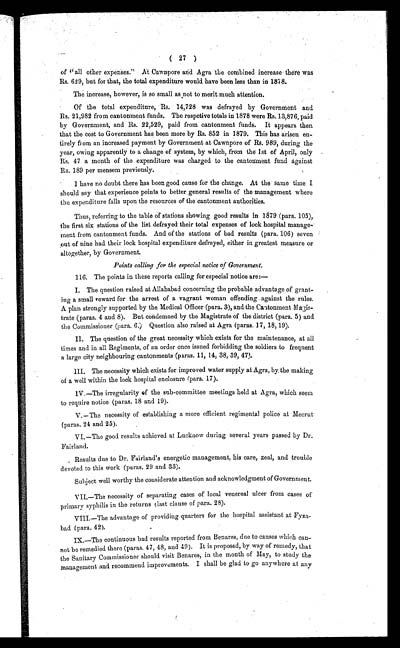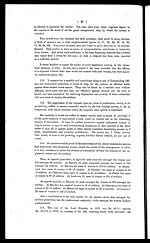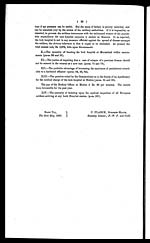Medicine - Institutions > Lock hospitals > Annual report on the working of the lock hospitals in the North-Western Provinces and Oudh > Sixth annual report of the working of the lock hospitals in the North-Western Provinces and Oudh, for the year 1879
(217) Page 27
Download files
Individual page:
Thumbnail gallery: Grid view | List view

( 27 )
of ''all other expenses." At Cawnpore and Agra the combined increase there was
Rs. 629, but for that, the total expenditure would have been less than in 1878.
The increase, however, is so small as not to merit much attention.
Of the total expenditure, Rs. 14,728 was defrayed by Government and
Rs. 21,982 from cantonment funds. The respctive totals in 1878 were Rs. 13,876, paid
by Government, and Rs. 22,529, paid from cantonment funds. It appears then
that the cost to Government has been more by Rs. 852 in 1879. This has arisen en-
tirely from an increased payment by Government at Cawnpore of Rs 989, during the
year, owing apparently to a change of system, by which, from the 1st of April, only
Rs. 47 a month of the expenditure was charged to the cantonment fund against
Rs. 189 per mensem previously.
I have no doubt there has been good cause for the change. At the same time I
should say that experience points to better general results of the management where
the expenditure falls upon the resources of the cantonment authorities.
Thus, referring to the table of stations showing good results in 1879 (para. 105),
the first six stations of the list defrayed their total expenses of lock hospital manage-
ment from cantonment funds. And of the stations of bad results (para. 106) seven
out of nine had their lock hospital expenditure defrayed, either in greatest measure or
altogether, by Government.
Points calling for the especial notice of Government.
116. The points in these reports calling for especial notice are:―
I. The question raised at Allahabad concerning the probable advantage of grant-
ing a small reward for the arrest of a vagrant woman offending against the rules.
A plan strongly supported by the Medical Officer (para. 3), and the Cantonment Magis-
trate (paras. 4 and 8). But condemned by the Magistrate of the district (para. 5) and
the Commissioner (para. 6.) Question also raised at Agra (paras. 17, 18, 19).
II. The question of the great necessity which exists for the maintenance, at all
times and in all Regiments, of an order once issued forbidding the soldiers to frequent
a large city neighbouring cantonments (paras. 11, 14, 38, 39, 47).
III. The necessity which exists for improved water supply at Agra, by the making
of a well within the lock hospital enclosure (para. 17).
IV.—The irregularity of the sub-committee meetings held at Agra, which seem
to require notice (paras. 18 and 19).
V.—The necessity of establishing a more efficient regimental police at Meerut
(paras. 24 and 25).
VI.—The good results achieved at Lucknow during several years passed by Dr.
Fairland.
Results due to Dr. Fairland's energetic management, his care, zeal, and trouble
devoted to this work (paras. 29 and 33).
Subject well worthy the considerate attention and acknowledgment of Government.
VII.—The necessity of separating cases of local venereal ulcer from cases of
primary syphilis in the returns (last clause of para. 28).
VIII.—The advantage of providing quarters for the hospital assistant at Fyza-
bad (para. 42).
IX.—The continuous bad results reported from Benares, due to causes which can-
not be remedied there (paras. 47, 48, and 49). It is proposed, by way of remedy, that
the Sanitary Commissioner should visit Benares, in the month of May, to study the
management and recommend improvements. I shall be glad to go anywhere at any
Set display mode to: Large image | Zoom image | Transcription
Images and transcriptions on this page, including medium image downloads, may be used under the Creative Commons Attribution 4.0 International Licence unless otherwise stated. ![]()
| Permanent URL | https://digital.nls.uk/75111483 |
|---|




